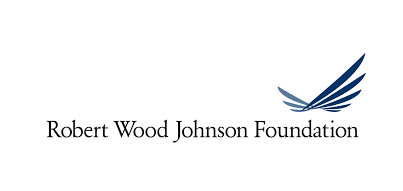Nurses have active roles in all aspects of patient care. A new report by the Robert Wood Johnson Foundation shows how nurses are in pivotal roles that allow for current patient care now and can make enormous impact on the future health of the population.
Nurses have active roles in all aspects of patient care. A new report by the Robert Wood Johnson Foundation shows how nurses are in pivotal roles that allow for current patient care now and can make enormous impact on the future health of the population.
“Activating Nursing to Address Unmet Need in the 21st Century,” explores the role of nurses and nursing in addressing the complex, multilayered diseases that are brought on by a combination of medical, social, and economic factors.
Calling these the “diseases of despair,” the report notes how nurses are positioned to assess the needs of patients that go beyond their medical status. The report also calls on nursing education to amplify the attention given to theses diseases of despair and give nurses the tools they need to help make broader and more comprehensive assessments of populations.
To ensure a nursing workforce that can address issues that are not in medical training manuals but have as much of an impact on a patient’s current and future well being, the report’s author Patricia Pittman, FAAN, PhD, professor in the Department of Health Policy and Management, Milken Institute School of Public Health, George Washington University, states that the nursing profession can begin to look at how nursing intersects with other professions that offer care and treatment.
For conditions around substance abuse, mental health, and obesity-related issues, policies impacting health equity, community health, and specific demographic challenges are essential. And with a growing demand for nurses who represent the populations they serve, a continuing need for diversity within the nursing workforce is an urgent issue.
Examining the varied changes the nursing profession has evolved through, particularly over the last century and a half, Pittman shows how nurses cannot just care for a patient’s health without considering all the other factors that influence the patient.
To do this, the report calls for nursing roles that include time, education, and opportunity to collaborate with other professionals in non-medical areas to help meet these often “unmet” needs that range broadly from healthy behaviors to the physical environment the patient lives in. This kind of innovative approach cares for the patient as an individual and as part of a larger community, thereby influencing a larger population at all levels.
To help move these ideas forward, new tools that help with assessment, implementation, tracking, and additional education need to be developed. With these changes moving forward, the face of nursing can change to bring about even greater health impacts for patients and greater nurse career satisfaction as they see the larger impact they can contribute.
For conditions around substance abuse, mental health, and obesity-related issues, policies impacting health equity, community health, and specific demographic challenges are essential. And with a growing demand for nurses who represent the populations they serve, a continuing need for diversity within the nursing workforce is an urgent issue.
Examining the varied changes the nursing profession has evolved through, particularly over the last century and a half, Pittman shows how nurses cannot just care for a patient’s health without considering all the other factors that influence the patient.
To do this, the report calls for nursing roles that include time, education, and opportunity to collaborate with other professionals in non-medical areas to help meet these often “unmet” needs that range broadly from healthy behaviors to the physical environment the patient lives in. This kind of innovative approach cares for the patient as an individual and as part of a larger community, thereby influencing a larger population at all levels.
To help move these ideas forward, new tools that help with assessment, implementation, tracking, and additional education need to be developed. With these changes moving forward, the face of nursing can change to bring about even greater health impacts for patients and greater nurse career satisfaction as they see the larger impact they can contribute.
- Is the FNP Program Right for You? - April 24, 2024
- WOC Nurses Week Highlights Specialty - April 16, 2024
- Honoring Radiology Nurses Day on April 12 - April 12, 2024



